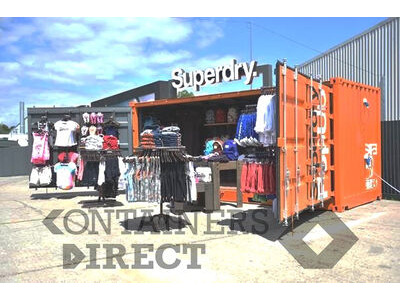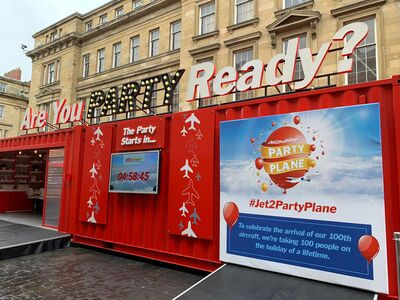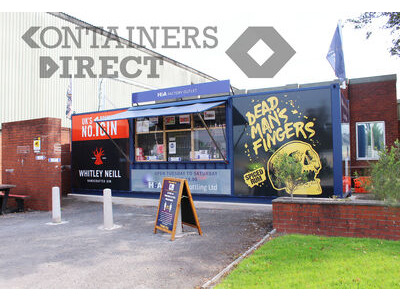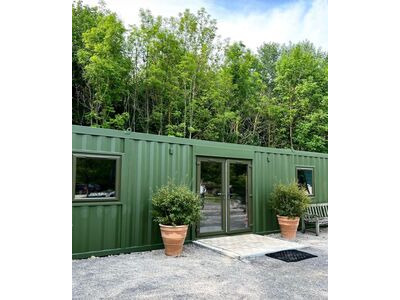5 Things to Consider When Launching a Retail Pop-Up
Thursday 21 September 2023
Updated: Thursday 5 October 2023
Filed in: General
Low-budget, quick install pop-up shops are the new trend to get your brand name visible and trade boosted. Amongst the huge growth in ecommerce business it's essential to find a new way of cut through all the noise and competition to reach customers and clients. Find out about the basics yet essentials in starting up a pop-up shop with minimal risk.
As the convenience of online shopping has grown, so have the problems. A picture of a product tells very little about its quality, colour, size, materials and a myriad of other details that can only be assessed by viewing in real life. Along with this returns can be expensive and inconvenient. and of course there's always the worry over being scammed!
Pop-up retail is more than in-store trading!
A pop up shop is suited to a wide range of business and services . Here's just a few examples:
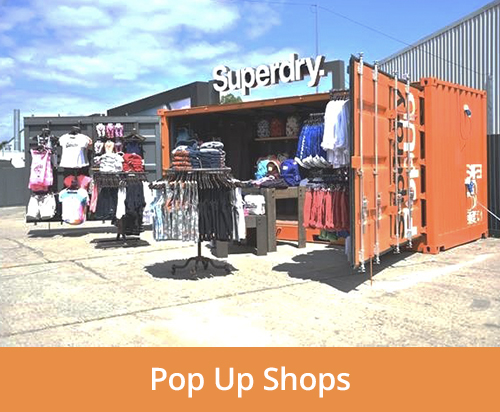
- Gallery or event space - low-cost, quick to install, and temporary to draw in a crowd for viewing and promotional events.
- Art and craft fairs - a mobile temporary space for a targeted audience to come and see what you make and sell.
- Farmers' markets - take your seasonal provisions on the road to these lucrative pop-up markets
- Food and drink - pop-up retail includes catering - anything from coffee, snacks and sandwiches, burgers and hot dogs to pizzerias and bars. Find out more about pop-up catering pods.
- Showrooms - if you sell high-value goods or services, customers will be hesitant to buy online without viewing first and asking questions before investing. A pop up shop to display a limited amount of stock, demonstrate and provide information is a great way to get ahead of the competition.
- Flash sales - these create a sense of urgency to for customers to come along and buy your stock. If people know the shop (and any discounts offered) will be gone in a short space of time, unlike online shopping they can't hold it in their basket for days while deciding.
View our favourite pop-up product picks
Choosing your pop-up unit
There are different types of pop-up stores to choose from at the planning stage. You can rent a kiosk or temporary unit at a shopping centre, or take out a temporary rental on a empty shop space where it's difficult for the landlord to find a permanent tenant. However, shipping container pop-up shops and food stalls have multiple benefits over a static premises:- No on-going fees – a shipping container conversion is a one-off cost, and a permanent place to run your pop-up business from. No need for negotiating contracts and fees each time you relocate!
- Portable – shipping containers give you the freedom to just pack up and go wherever your shop needs to be. With a mobile unit you can capitalise on fresh trade to be made at festivals, seasonal markets, special events and more.
- Low-cost and flexible – own your own retail or catering pop-up for a price that beats the cost of traditional buildings or rents. Whether you decide to site your pop-up container shop on a permanent site, or take it on the road, both options are feasible with a container pop-up. You get to plan and design exactly what you need included in the conversion, unlike pre-existing buildings. From patio style doors or serving hatches, electrics and lining, you can make the unit your own! Wood cladding can even be fitted on the outside of your container as camouflage. Take a look at popular modifications used to create a pop-up retail container,
Shipping containers are eco-friendly, with a low carbon footprint and recyclable materials.
What to consider before launching your retail pop-up
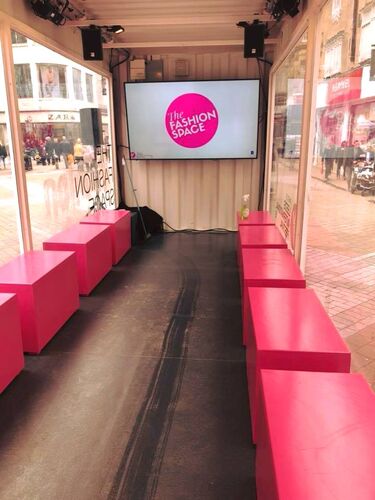
- Location – Do your research into the areas you are considering "popping-up" in. What is the foot traffic like in the area? As a new presence in area, capturing passing footfall is essential. What other types of businesses are near the location? How easy is to access is the location and is there parking? Some 77% of shoppers say being able to find an open parking spot is their biggest frustration. Are your products and prices a good match for the area? Find out where established seasonal markets, fairs and events are held and put them in your calendar. It can be easier to take your trade to places where a customer base is already gathered, than trying to find them on your own! It also gives you the opportunity to test new products on a small-scale before investing in a large number of units.
- Duration – Excluding set dates for special events you want to pop-up at, you will want to give some thought into how often you are prepared to relocate. Regular relocation allows you to capture the curiosity of new shoppers, generate sense of urgency for people to visit "while stocks last" or "for X days/weeks only", keeps interest fresh, and allows you to test out your shop's popularity in different regions. Business may be slow for you in one area but booming in another. With a portable shop you have the capacity to quit and move on whenever you need to.
On the other side, you may find that staying in one location for a longer period of time allows you to gain traction and build an established customer base there. Often pop-up shops become permanent fixtures based on the success or the short-term sales in a particular place. Whether your goal is to remain as a time-limited pop-up, or settle in a permanent location, having the flexibility to experiment with a portable shop is key. - Signage – A shipping container pop-up can easily be fitted external signage. Think about what your brand is trying to convey, how eye-catching the signage is, where to position it terms of how easy it is to spot or if there any buildings or obstacles around the site blocking it. Painting your shop on the outside is eye-catching way, using your brand colours along with using decals/vinyl stickers will make it stand out. Alternatively you may need it to blend in with the surroundings rather than stand-out. If it is a permanent fixture this could be essential for planning permission, particularly in green belt areas. You may need to stick to a neutral colour with limited signage, or use wood cladding to compliment areas of natural beauty.
- Licensing and permits - Each region has its own legal regulations and business permit requirements. For food and alcohol you will likely need a license, so if you are planning an event or opening day with alcohol you'll need to a have a license. As terms and conditions for trading permits, licenses and public liability insurance can vary it is essential you do your homework in advance to avoid costly mistakes.
- Marketing – Pay attention to getting the word out there for your pop-up shop, events or showcasing, Visibility is key! Even if your pop-up project is intended as a step towards moving away from online sales, you'll still want to advertise it through social media channels, or on your website. A special launch day or event is important to draw people in initially, and spread the word around, so get creative. Celebrate your opening with style and confidence!
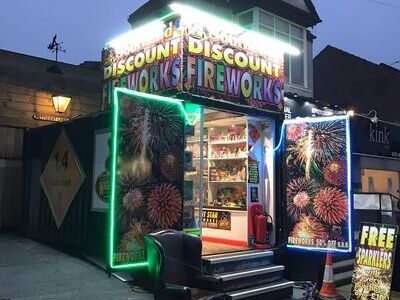
Further usage of this website indicates you are happy for us to do this..
Find out about the cookies we have set and how we use them.

